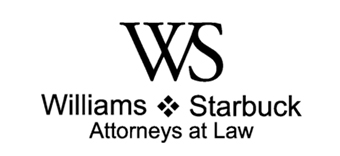If you’ve been appointed an executor of a loved one’s estate or a successor trustee, and that person dies, your grief – not to mention your to-do list, including tasks ranging from planning the funeral, coordinating relatives coming in from out of town and (eventually) meeting with a trust administration or probate lawyer – can be quite overwhelming. First and foremost, take care of yourself during this emotional time.
To help you with the “business” end of things, here’s a quick estate planning checklist of crucial details that will make the trip to our office to handle legal affairs easier. I know it can be difficult, but some of these things have a deadline, so make sure that you reach out sooner rather than later:
- Secure the deceased’s personal property (vehicle, home, business, etc.).
- Notify the post office.
- If the deceased wrote an ethical will, share that with the appropriate parties in a venue set aside for the occasion. You may even want to print it and make copies for some individuals.
- Get copies of the death certificate. You’ll need them for some upcoming tasks.
- Notify the Social Security office.
- Take care of any Medicare details that need attention.
- Contact the deceased’s employer to find out about benefits dispensation.
- Stop health insurance and notify relevant insurance companies. Terminate any policies no longer necessary. You may need to wait to actually cancel the policies until after you’ve “formally” taken over the estate, but you can often get the necessary paperwork started before that time.
- Get ready to meet with a qualified probate and trust administration attorney. Depending on the circumstances, a probate may be necessary. Even if a probate is not needed, there is work that needs to be done to administer the trust properly. Here’s what you need to gather:
- The deceased’s will and trust. If the original of the deceased’s will or trust can’t be located, contact us as soon as possible and bring any copies you do have.
- A list of the deceased’s bills and debts. It’s often easier to bring the statements or the actual credit cards into the office rather than try to write out a list, but do whatever is easiest for you.
- A list of the deceased’s financial advisors, insurance agents, tax professionals, and other professional advisors.
- A list of the deceased’s surviving family members, including their contact information when available. Even if they’re not named in the trust, the attorney will need to know about everyone in the family.
- Cancel your loved one’s driver’s license, passport, voter’s registration, and club memberships.
- Close out email and social media accounts, and shut down websites no longer needed. Depending on circumstances, to take these steps, you may need to wait until you’ve “formally” taken over the estate, but you can often learn the procedures and be ready to act.
- Contact your tax preparer.
You may be thinking about handling all the paperwork yourself. It’s a tempting thought – why not keep things as simple as possible? – but a “DIY” approach to this process might cost you and your family dearly. Read on to understand why.
Consequences of Mishandling an Estate: Examples from Real Life
Example #1: Failing to disclose assets to the IRS.
Lacy Doyle, a prominent art consultant in New York City, inherited a large estate when her father passed away in 2003. He allegedly left her $4 million, but she only disclosed fewer than $1 million in assets when she filed the court documents for the estate. Per the New York Daily News: “She opened an ‘undeclared Swiss bank account for the purpose of depositing the secret inheritance from her father’ in 2006 — using a fake foreign foundation name to conceal her identity… [she also] didn’t report her interest in the hidden accounts — nor the income they generated — from 2004 to 2009.” As a result of these alleged shenanigans and Doyle’s failure to report the accounts to the IRS, she was arrested, and she now faces a six-year prison sentence.
Example #2: Misusing power of attorney.
Another famous case of an improperly handled estate involved the son of a famous New York socialite, Brooke Astor. Her son, Anthony Marshall, was convicted of misusing his power of attorney and other crimes. Per a fascinating Washington Post obituary: “In 2009, Mr. Marshall was convicted of grand larceny and other charges related to the attempted looting of his mother’s assets while she suffered from Alzheimer’s disease. He received a sentence of one to three years in prison but, afflicted by congestive heart failure and Parkinson’s disease, was medically paroled in August 2013 after serving eight weeks.”
Some Key Takeaways
- Seek professional counsel to avoid even the appearance of impropriety when handling an estate.
- Bear in mind that errors of omission and accident can be costly – even if your intent was good. An executor who makes distributions from an estate too soon can get into serious trouble, for instance. An executor’s personal assets can wind up in jeopardy if his or her actions cause an estate to become insolvent.
- Even if you’re well organized and knowledgeable about probate and estate law, it’s surprisingly hard to anticipate what can go wrong. There are many ways to end up in hot water when you’re handling the estate or trust of a loved one.
We’re here to help you steer clear of the obstacles and free you to focus on yourself and your family during this difficult time. We can help you manage the estate and trust-related concerns. Call us at 1-720-660-9847 today to schedule a free consultation.
